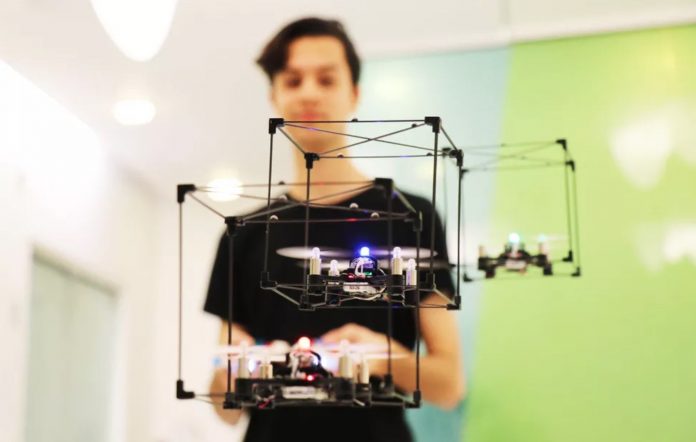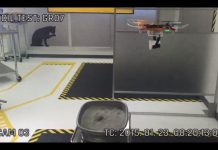LEGO Group’s Creative Play Lab and the Human Media Lab at Queen’s University collaborated to create this interactive system. People can assemble LEGO bricks into any configuration their hearts desire, and then watch a group of mini drones mimic its shape and color in the air.
Thanks to a series of small gyroscopes and sensors, the system can accurately replicate patterns as the children move, twist, and bend the original design.
“At the LEGO Group, we continuously explore the opportunities offered by new technologies to create fun and creative experiences for children. We are happy to offer the visitors at the LEGO World expo the chance to experiment with LEGO bricks and drones in collaboration with Queen’s Human Media Lab,” says Tom Donaldson, VP of Creative Play Lab, at the LEGO Group.
“While the technology is a playful experiment, and not a real LEGO product, it is a way for us to explore the boundaries of what can be done with a combination of technology, LEGO bricks, and loads of playful imagination,” Donaldson adds.
Although still in its experimental phase, the team hopes this technology will help form the future of play, unleashing creative potential and offer an enhanced way to learn.
“As an example, imagine us interactively reconstructing the movement of planets around our sun or distant stars in the Milky Way galaxy,” says Dr. Vertegaal, head of the Human Media Lab and professor of Human-Computer Interaction at Queen’s University in Kingston, Canada. “With this technology, we are able to simulate the physics of the natural world like gravity, planetary orbits, and more, giving children a chance to see what they have long learned from textbooks and two-dimensional depictions, in a real physical environment.”
Watch the drone show in the video below.















